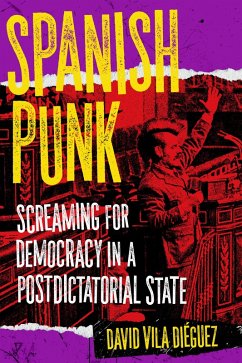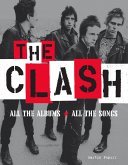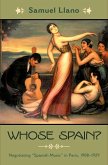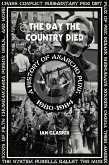It's 1975. Spanish dictator Francisco Franco dies and Spain begins transitioning to a democratic state. Spaniards are faced with a titanic task: they need to design a new democratic state after an almost forty-year-old dictatorship. What should this new state look like? What would make it a "democratic" one? These and similar questions triggered many heated discussions over the next few years. It is also during this time that punk culture developed in Spain and-as one would expect-the action of questioning and challenging the new state being created became a defining characteristic of the movement.
Taking the unique case of Spanish punk as its object of study, Spanish Punk: Screaming for Democracy in a Postdictatorial State explores the political relevance of the punk phenomenon in Spain and pays special attention to its connections with contemporary social and political movements and antiestablishment political identities. Combining textual, historical, philosophical, and musicological readings, this book shows that punk represents a determinant cultural glue that kept many political movements together and the cultural axis from which many of the contemporary social movements emerged. To do so, it studies punk through music, fanzines, testimonies from various people involved in Spanish punk culture, an analysis of the ways of life derived from it, and more. This long overdue study of Spanish punk fills an important gap in punk-related scholarship as well as in Spanish cultural studies.
Taking the unique case of Spanish punk as its object of study, Spanish Punk: Screaming for Democracy in a Postdictatorial State explores the political relevance of the punk phenomenon in Spain and pays special attention to its connections with contemporary social and political movements and antiestablishment political identities. Combining textual, historical, philosophical, and musicological readings, this book shows that punk represents a determinant cultural glue that kept many political movements together and the cultural axis from which many of the contemporary social movements emerged. To do so, it studies punk through music, fanzines, testimonies from various people involved in Spanish punk culture, an analysis of the ways of life derived from it, and more. This long overdue study of Spanish punk fills an important gap in punk-related scholarship as well as in Spanish cultural studies.
Dieser Download kann aus rechtlichen Gründen nur mit Rechnungsadresse in A, D ausgeliefert werden.









